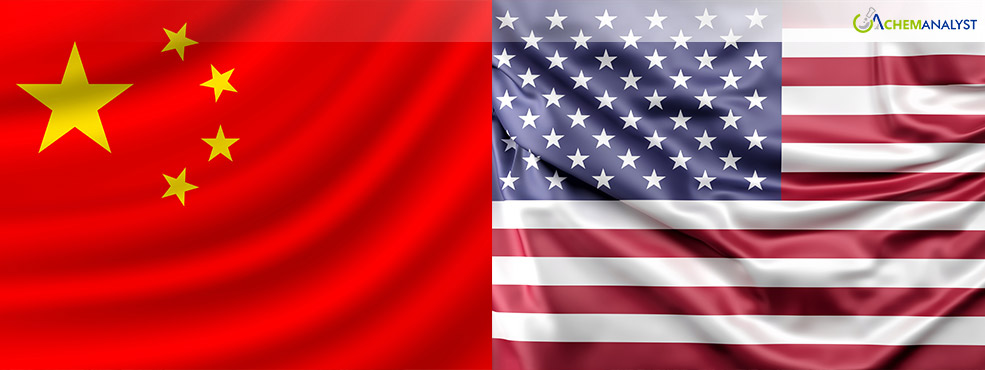Welcome To ChemAnalyst

In a landmark move that marks a significant escalation of U.S. efforts to curtail China’s technological ambitions, the Biden administration announced a set of broad new restrictions on Monday aimed at severely limiting China’s access to advanced semiconductor technology. The sweeping trade restrictions target over 100 Chinese companies, including key players in the country’s semiconductor and manufacturing sectors, and are designed to slow China’s progress in developing cutting-edge chips critical to military applications, artificial intelligence (AI), and supercomputing.
The measures, which add more than 140 Chinese entities to the U.S. government’s entity list, are the latest in a series of aggressive actions by the Biden administration to curb China’s technological rise. They represent an expansion of regulations initially implemented in 2022 and 2023, as part of a broader strategy to limit China’s access to high-tech tools and technologies that could be used for military purposes or enhance its global technological competitiveness. The new rules come at a time when the U.S. government is intensifying its efforts to protect national security interests by cutting off China’s ability to develop next-generation military and AI technologies that could threaten American military and economic power.
Commerce Secretary Gina Raimondo called the new restrictions "the strongest controls ever enacted by the U.S." during a Sunday call with reporters. She emphasized the goal to "degrade China’s ability to produce the most advanced chips," crucial for China’s military modernization, cyber capabilities, intelligence, and weapons systems.
The new restrictions target China’s semiconductor industry by expanding the list of prohibited exports, including advanced memory chips and essential manufacturing equipment. Global controls are also imposed on two dozen types of semiconductor fabrication equipment, tightening the U.S. grip on China’s chip-making capabilities.
The new rules balance national security with U.S. industry interests by allowing special exceptions through a licensing process. This system enables U.S. companies to request permission for shipments to certain Chinese factories, including those linked to Huawei, while still enforcing broader strategic objectives.
The administration’s decision to move forward with these rules despite heavy lobbying from both national security advocates and the chip industry underscores the delicate balance the Biden administration has sought to maintain. While the national security community argues that limiting China’s access to critical semiconductor technology is essential to preventing the rise of an adversarial superpower, the semiconductor industry has raised alarms that overly stringent restrictions could undermine U.S. global leadership in chip manufacturing and innovation.
In a significant departure from earlier trade bans, the new rules do not target certain Chinese semiconductor production facilities that are still under construction, nor do they include many factories that have been operational for years but may now be seeking to scale up their output with advanced machinery. This omission has sparked criticism from some quarters, with critics arguing that the Biden administration has missed an opportunity to deliver a decisive blow to China’s growing chip production capabilities.
The Biden administration is cautious of the economic impact of the restrictions, with provisions that may benefit U.S. companies, especially those in semiconductor equipment manufacturing. These complex regulations aim to curb China’s technological progress while considering the commercial risks for U.S. firms reliant on Chinese markets.
The new rules also impose greater due diligence requirements on U.S. firms, urging companies to carefully scrutinize the factories they sell to in China. This added layer of responsibility is likely to create challenges for U.S. exporters, who must navigate the growing web of sanctions and restrictions while remaining competitive in a global marketplace.
As the Biden administration’s final move before Trump’s inauguration, the new rules signal the U.S. intent to control the global semiconductor supply chain. However, with exceptions for some industries, it remains unclear whether these measures will fully hinder China’s chip industry or if China will find ways to bypass them.
The coming months will be crucial as the U.S. enforces these restrictions and China works to recover its semiconductor capabilities. The rules' effectiveness will depend on China’s ability to adapt and the U.S. government’s willingness to escalate actions if China advances without relying on Western technology.
We use cookies to deliver the best possible experience on our website. To learn more, visit our Privacy Policy. By continuing to use this site or by closing this box, you consent to our use of cookies. More info.
